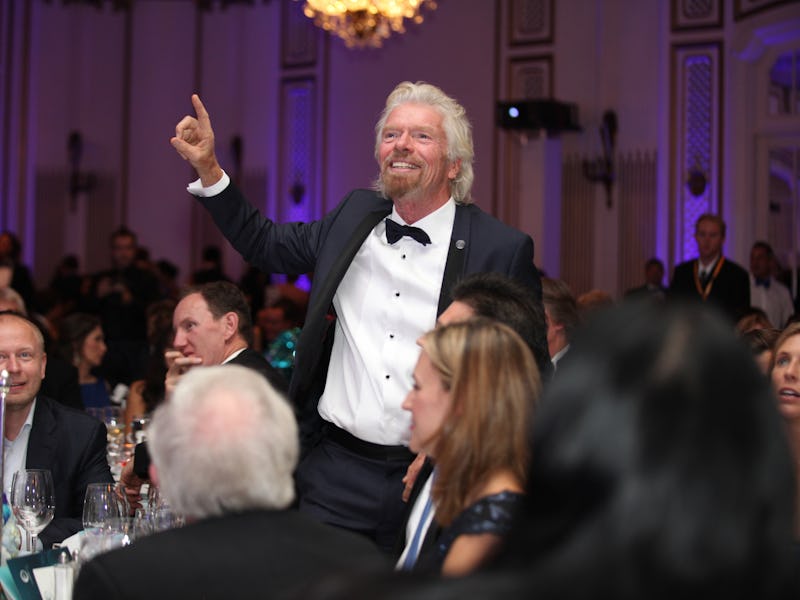Richard Branson is Seriously Passionate on Universal Basic Income
He says every member of society should have the "opportunity to work and thrive."

Virgin Group founder Richard Branson became the latest billionaire to support the idea of universal basic income this week, saying that the concept should be “further explored” to help every member of society have the “opportunity to work and to thrive.”
Branson broached the topic of UBI in a blog post on Monday that he writes was inspired by a recent meeting with The Elders, a nongovernmental organization of former statesmen and world leaders. He specifically pointed to Finland’s experiments with basic income as an example of governments providing a guaranteed monthly stipend to low-income or unemployed citizens, replacing other social benefits.
The core of Branson’s idea is that a form of basic income would be paid even if the recipient finds a job. In traditional social safety net systems like unemployment programs in the U.S., people who do find a job are ineligible for benefits because they have a paying job. While that sounds like an intuitive system, Branson points out that if someone moves from unemployment to a low-paying job, their circumstances aren’t really better — they have less time for creative and ambitious pursuits, and they’re still poor as heck.
“A key point is that the money will be paid even if the people find work,” Branson wrote. “The initiative aims to reduce unemployment and poverty while cutting red tape, allowing people to pursue the dignity and purpose of work without the fear of losing their benefits by taking a low-paid job.”
Here's Branson at a Virgin Mobile office in Colombia. With UBI, workers could pursue more ambitious, innovative careers rather than working jobs out of financial necessity.
Branson’s comments, like those of his peers Mark Zuckerberg and Elon Musk, point to the looming specter of automation of the workforce. Eventually, robots and automated technology will be able to supplant a vast portion of jobs, and when they do, people will need some kind of financial safety net, frankly, so they don’t starve and die. Musk has repeatedly emphasized the need for basic income, and recently, Facebook founder Mark Zuckerberg appears to have adopted it as central issue, mentioning it during his Harvard commencement speech and noting that, in certain forms, the system can be a “bipartisan idea.”
“A lot of exciting new innovations are going to be created, which will generate a lot of opportunities and a lot of wealth, but there is a real danger it could also reduce the amount of jobs,” Branson wrote. “This will make experimenting with ideas like basic income even more important in the years to come.”
Branson hi-fives a group of kids in South Africa, where 63% of children grow up in poverty, according to a 2016 survey.
What Branson, Musk, and Zuckerberg haven’t explicitly mentioned is that the funding from UBI has to come from somewhere. The general line is that the corporate profits from automation will be redistributed for the public to share. But for that to happen, it would require a country-by-country adjustment of tax rates and governmental budgets. UBI is an interesting concept for billionaires to champion, as a successful system would most likely in some way directly cut into their bottom line, either through an increase in corporate tax rates or tax hikes on rich people.
Branson’s comments, however, may hint to another way of finding the money. Speaking of Finland’s program, he writes: “The initiative aims to reduce unemployment and poverty while cutting red tape,” which could refer to finding the budget for UBI through eliminating other taxpayer-funded social programs.
While this could produce a more streamlined system of wealth redistribution, we still aren’t sure how an automated future will affect the needs of the poor, and whether they may need a more sophisticated safety net than just a guaranteed income. Still, if Musk, Branson, and Zuckerberg are all starting the conversation now, basic income in the U.S. could be a reality of life in the near future.